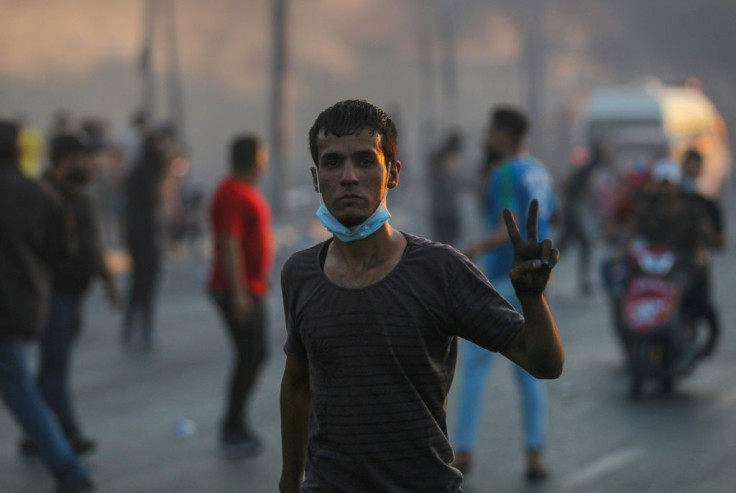Why Are There Protests In Iraq? Understanding The Current Crisis In The Post-War Country

Protesters this week have taken to the streets across Iraq to decry the corruption and lack of economic opportunities in their country. Reports suggest that so far nearly 100 people have been killed and over 3,000 injured in the demonstrations, making it the worst unrest the oil-rich country has experienced since ISIS was defeated in 2017.
The country faces 25% youth unemployment, decrepit infrastructure, and a widening gap between the rich and poor. The International Monetary Fund also claims that the Iraqi economy contracted by 0.6% in 2018.
On Sunday, Prime Minister Adel Abdul Mahdi introduced "extraordinary" reforms in order to address the protesters' grievances. These include measures such as increased welfare stipends for the needy and land reforms.
But Abdul-Mahdi may already be too late as protests continue. Prominent Iraqi Shiite cleric Muqtada al-Sadr has called for the government to resign and for new elections to be held to prevent further violence.
Iraqi security forces have reportedly used live rounds on the protesters along with tear gas. Yahya Rasool, the spokesperson for Iraq's Joint Operations Command, has said that "we are committed by rules of engagement and no live ammunition was used."
On Saturday, masked men attacked news stations in Iraq such as Saudi-owned Al-Arabiya, with some believing that it was the work of pro-Iranian militias.
Fanar Haddad, a senior research fellow at the Middle East Institute at the National University of Singapore, told the Wall Street Journal that "It's not a spectacular scenario any longer for this to degenerate into a civil war."
Although the protests do not seem to be of sectarian nature, the religious divide in the country could flare up due to the unrest. The country is still dealing with the remnants of ISIS and also the pro-Shiite militas in parts of Iraq.
The 2003 U.S intervention in Iraq may have taken out Saddam Hussein, but it has been difficult for Iraqis to enjoy a secure political and economic situation since then. According to the U.S. Institute of Peace, Washington's decision to bar the long-ruling Baath party caused a political vacuum in the country, while disbanding the military created a lack of security for Iraqis.
© Copyright IBTimes 2025. All rights reserved.





















